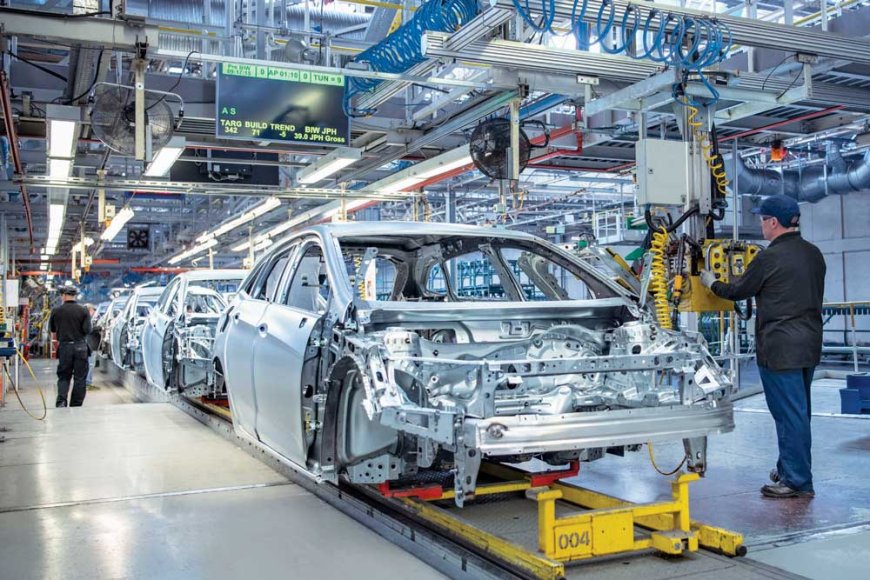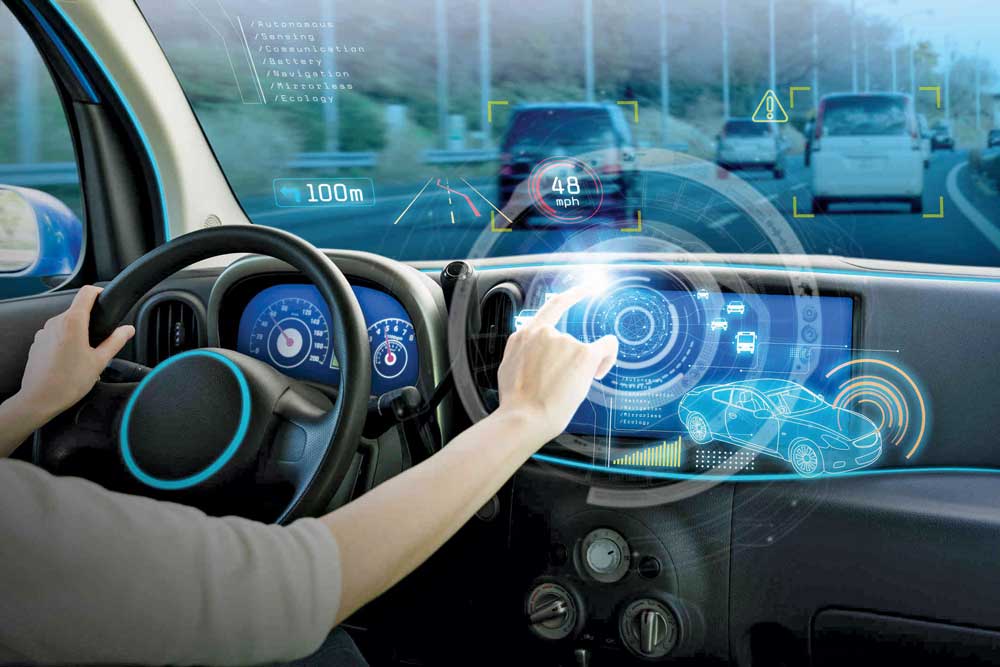TRANSFORMING AUTOMOTIVE MANUFACTURING
Nitin Lall GM, Industrial Technique, Atlas Copco The automotive industry has a great amalgamation of tech and industrial sector disrupts to make innovative solutions. With the digitization buzz across the world, the automotive industry


Nitin Lall
GM, Industrial Technique, Atlas Copco
The automotive industry has a great amalgamation of tech and industrial sector disrupts to make innovative solutions. With the digitization buzz across the world, the automotive industry is also gearing up for an extensive change in 2021. The sector has seen tremendous ups and downs in the past decade. But, with all the technology adoption in the varied sector, the auto industry is gradually moving towards advancement wherein the industrialists will make more revenue and end users will find more innovative driving techniques.
China alike other sectors, tops in automobile sector too followed by U.S and Japan. However, with the changing time and scenarios like demand for auto sector outputs and nation’s average age, the automotive sector is changing. Since 2019, India ranks 4th for being the largest automobile market surpassing Germany and predictions says that it is all set to become the 3rd largest market overtaking Japan. By 2030, the sources predict, the auto sector will be led by China followed by the U.S and India.
The data shown by IBEF says that Indian automotive industry (including component manufacturing) is expected to reach Rs. 16.16-18.18 trillion by 2026
Along with various sector, automotive also witnessed a slow down during pandemic due to decrease in sales. However, the industry has started to rebound and gives an array of hope to everyone. So here are few tech trends that will transform the automotive manufacturing industry in 2021
Digitalization is the new face of the sector
While Digitalization is the new realm for the auto industry, it has already been implemented by large automobile institutions to cater their customers to provide them with the best car buying and selling experience. But it also includes the usage of VR (Virtual Reality), IoT (Internet of Things) and AR (Augmented Reality) to implement the latest technologies including the use of multi-hybrid cloud network architectures and Development and operations at a deeper level in the upcoming future.
AI-based autonomous vehicle
AI- based autonomous vehicle are the pacesetter in the auto industry. AI is enabling smart travel methods through self-driving cars. These vehicles do not need drivers and work on sensors and software F[CP1] or control and navigation. Autonomous vehicles are meant to reduce the requirement of human drivers to make day-to-day transport easy. Big industry players like Uber, Tesla, Google are strongly supporting working towards autonomous cars, making it more reliable. With the current pace, it is estimated that further application will also be explored, and investments will pour in in the coming years.
Electrification is the dire need
The automotive industry bets its future on batteries. Government agencies, Investors and carmakers are pouring money into research of batteries in a worldwide race to profit from emission free electric vehicles. According to Indian Brand Equity Foundation, EV sales, excluding E-rickshaws, in India witnessed a growth of 20% and reached 1.56 lakh units in FY20 driven by two wheelers. The increasing rate of reliance on fossil fuels and the harm to the environment caused by using them has changed the outlook of automotive sector. Moreover, it has given emphasis to electric vehicles (EVs). A fact says that cars contribute to 15% of carbon emission which causes potentially irreversible damage to environment and deplete the fossil fuel reserves. To address these challenges, Electric cars are leveraging a higher level of energy efficiency and reduced fuel consumption. Though there are limitations of EVs, which is still making it debatable with regards to its acceptance and adoption in the sector. Electric vehicle makers should come up with solutions on poor battery, high price, inadequate charging infrastructure, renewable energy-based charging, and fleet electrification.
Blockchain, most likened technology
Blockchain has enabled the information more secure and safe to change, hack or cheat the system. It transforms the organization’s processes. It enables to share the vehicle data over a secure network for connectivity and shared mobility solutions such as urban transportation, ride-hailing and deliveries. It is also used in the verification process to improve efficiency across back-office works and supply chain. The disruption of blockchain in auto sector is anticipated to increase in the future.
3D printing, a new generation manufacturing
With the increasing demands witnessed by auto sector for new vehicles and spare products, the industrialists and end users always aspire for newer, better performing vehicles and need to optimize production and streamline supply chains and logistics. 3D technology is helping to meet all these requirements and challenges. It has been explored across all the areas of automotive production. Apart from its usage for rapid prototyping, it is also being used to produce tooling and end parts
The automotive sector is moving towards the surge in the demand for newer technologies every year. To meet those demands, industrialists and researchers are coming up with latest manufacturing technologies. To cater the end users with the best and most innovative technology, car makers across the world are implementing various techniques. Coming years are welcoming the auto sector with various upcoming innovations in the technology, which will reshape the landscape of the automotive sector across the globe!

Hits: 108








